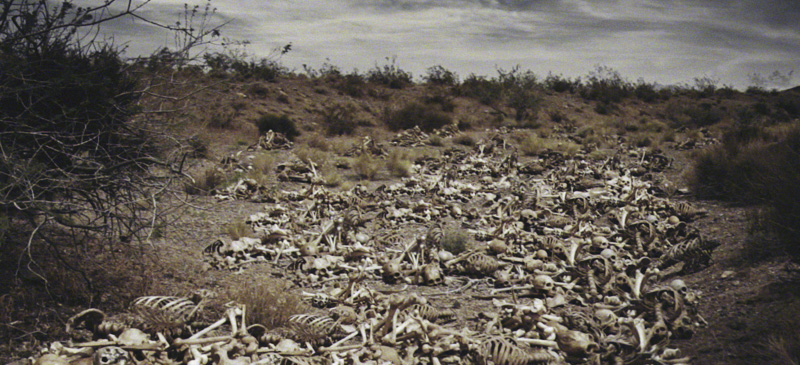Revised Common Lectionary for the 5th Sunday in Easter, Year B: Acts 8:26-40, Psalm 22:24-30, 1 John 4:7-21, and John 15:1-8
On Thursday of this past week, a client of the food pantry of St. Peter’s Episcopal Church in Ellicott City, Maryland, shot and killed the parish secretary, Brenda Brewington; shot and critically wounded one of the parish priests, the Rev. Dr. Mary-Marguerite Kohn; and then shot and killed himself. His name was Douglas Jones. The cutting short of those lives is not the sort of pruning about which Jesus speaks in today’s gospel lesson, but I could not let go of that image as I thought about and prayed about what happened in Maryland. As you all know, we here at St. Paul’s have our own regular food pantry ministry – the Free Farmers’ Market – and, on occasion, volunteers, including me although I don’t work the Market as often as I used to, have been threatened with violence by clients who have clearly had some cognitive dysfunction. The same has happened on weekdays when needy persons have come to the office seeking assistance; we have had uncomfortable and sometimes scary incidents in the office. I have never taken them very seriously. Perhaps I should. But I do not believe that the murder of church workers, lay or ordained, is the sort of “pruning” Jesus is here talking about. On the other hand, I have no doubt that from this tragedy in Maryland there will come much fruit. I have no doubt because I have heard the resolve in the voice of the bishop of Maryland, in the words of the parish and diocesan spokespeople who have interfaced with the media, in the reactions of clergy and laity throughout the church, and especially in the words of the parish’s rector, Fr. Kirk Kubicek. There will be growth from this horrible event because, while this is not the sort of pruning our Lord describes in this gospel lessons, the determination with which those most affected are facing this heartbreak, is the fruit of the Vine which is Christ, the Vine of which we are also branches. Today, in our prayers, we will pray for repose for those who died and for strength for those left behind.
Well . . . .
 I hadn’t really planned to do a sermon series about my childhood summers spent with Edgar and Edna Funston, but these “I am” statements of Jesus from the Fourth Gospel keep taking me back there, so once again . . . a story from Winfield, Kansas, fifty years ago.
I hadn’t really planned to do a sermon series about my childhood summers spent with Edgar and Edna Funston, but these “I am” statements of Jesus from the Fourth Gospel keep taking me back there, so once again . . . a story from Winfield, Kansas, fifty years ago.
It was the summer of 1961, that was the second summer my cousins were there as well. Bob – two years old then me, Randy – 20 months younger, and I decided we wanted to build a tree house. So we asked Granddad if we could do that and he said, “Yes.” He didn’t ask which tree we were thinking of using, and he didn’t give us any direction . . . he just said, “OK.” So we proceeded to build our tree house in his prize pie cherry tree.
My grandmother made wonderful cherry pies from that trees fruit. I think those cherry pies are the reason that’s my favorite kind of pie . . . and why I’m usually disappointed when I order my favorite kind of pie in a restaurant. They were my grandfather’s favorite pies, too.
That’s probably why he got so angry when he saw what we’d done. I’m sure he thought he’d never see another cherry pie from that tree again. Back in 1961 grandfathers could still spank their grandsons . . . and he did. Fifty years later and I still remember it. He also tore down the tree house we’d worked so hard to build.
Fast forward several months to June, 1962. Back in those days the Los Angeles Unified School District ended classes on the last school before Memorial Day (which wasn’t always on a Monday like it is now) and started them on the Tuesday after Labor Day (which always was the first Monday of September). My mom would always arrange to take a week of vacation the second week of June so she could drive me to Kansas, so I’d usually arrive at my grandparents sometime between the 5th and the 10th of June. That just happens to be cherry picking season in southeast Kansas. I usually looked forward to that . . . but not in 1962. Like my granddad, I was sure there would be no cherry harvest, and I was sure that he would again make his displeasure known.
Well, contrary to all expectations, not only was there a cherry harvest, it was the largest harvest from that tree in several years. My grandfather’s first words to me that summer were, “I owe you an apology. I guess that tree needed pruning.” It wasn’t the most attractive and artful job of pruning that Bob and Randy and I had done, but it was effective. We enjoyed more cherry pies that summer than you could imagine! And Grammy canned cherries for weeks.
I learned two things from that episode. One was that an honorable person apologizes when he’s proven wrong. My grandfather was nothing if not honorable. The second was the value of pruning. I’m a terrible gardener. I don’t enjoy it and I usually produce next to nothing useful when I try, but I know (because of that cherry tree) the purpose and value of pruning.
So when Jesus, in this the seventh and last of the great “I am” statements in John’s Gospel, talks about pruning, I know exactly what he is saying. I know what pruning is, I know that pruning can be painful, and I know that pruning produces results.
Last week, you’ll remember, we heard another of the “I am” statements: “I am the Good Shepherd,” Jesus said then. These metaphors that Jesus uses, these agricultural pictures that Jesus paints for us last Sunday and today are graphic reminders of our total dependence upon God, our pitiful inability to flourish with his nurturing. Sheep without a shepherd who (unlike the hired hand) remains with them in danger, even at the cost of his life, stray to solitary deaths. Vines without a a skilled vineyard keeper to prune away superfluous, misguided, and barren branches bear little or no fruit. Jesus didn’t say as much last week, but flocks like vines need to be cut back.
Where I was living in Ireland last summer was a livestock producing area. My cottage was on a cattle farm, not a ranch … they don’t have ranches in Ireland! Anyway, my landlords, John and Marion, would by a dozen or so steer calves each year, fatten them for some several months, and then sell them to be slaughtered for beef. One evening over a beer, John told me that one gets to know the cows; they each have a personality and as one moves them from field to field you get to know them. So when slaughter time comes, it is sort of sad. “But,” he said, “I don’t know how my neighbour does it.” His neighbour had a lambing operation. He was there for the birth of each lamb. His children would name them. The lambs were practically members of the family! And, yet, at various times the neighbouring shepherd would have to make a decision: which lambs to cull, to send for slaughter, which to keep for breeding stock, which to sell to someone else as breeding stock. “I don’t know how you do that,” John said.
Every day I would take a long walk down that road accompanied by the farm dog Buddy and on some days I would see the shepherd out with the sheep and the lambs. One day I could tell by his demeanor that it was that day, that he was selecting among the lambs those who would be taken away for slaughter and those that would be kept for breeding. This was not a large industrial operation; this was a small family-run farm and I am sure that, as Jesus said in last week’s gospel, he knew each of those lambs. But what had to be done had to be done, sad though it might have made that shepherd.
Culling the flock or cutting the vine in the right place are exacting, necessary tasks which the skilled shepherd or vine grower must do. Unpruned, vines grow in wild, unruly ways, exploding with new branches and great leafy cascades, but few grapes. Unwatched, sheep scatter and lose their way, wandering heedlessly into danger; unculled, a flock weakens and all of the sheep suffer.
Flocks of sheep are disorderly and topsy-turvy crowds. Vines and their branches are similarly tangled and messy. With either, it’s just too hard to know what is what. Not only are we dependent on Jesus the Shepherd, on God the Vinedresser, but our lives are uncomfortably tangled up together. The Christian life is a flock-y, vine-y, branch-y, mixed-up mess of us and Jesus and others.
I think only one or two of us may have culled a flock, but I know that all of us have, at one time or another, pruned our suburban hedges or shrubs. You may have experienced, as I have, a feeling of hesitation, that unwillingness to strip away what have been thriving branches for a greater and unseen future good. But what, with all that tangle of branches, are the alternatives?
Over the past several years there has been much hand wringing over the state of the church, its decline in membership, its loss of congregations, the shrinking of parish budgets, and so forth. We’ve looked at statistical graphs, at flow charts, at columns upon columns of figures, and we’ve pointed fingers at one another, at those who left, at the secular world around us, and at all sorts of other things seeking someone or something to blame for it all. In the Episcopal Church, we’ve blamed our loss of membership on new prayer books or on old prayer books, on women in Holy Orders or on failure to receive women in the clergy, on the acceptance (or the lack of acceptance) of gays and lesbians, on old style music or on new kinds of music, never noticing that the same statistical declines were happening in all the mainline denominations where none of those things were issues. We have wrung our hands and cried out to one another, “We’re dying on the vine here!”
I believe that today’s gospel lesson gives us a different way to look at things. We on the Vine, that’s for sure! But we ain’t dying on it. I believe these past several years have been a time of cutting back, that we are the branches that remain after the Vinedresser has done his pruning, the flock that is now smaller after the Shepherd has done his culling. And I believe that means we are on the verge of a time of new and exciting growth, a productive time of bearing fruit, a time of expanding the flock. We have all that we need to do that because we have the promise of the gospel: “Those who abide in me and I in them bear much fruit. . . . If you abide in me, and my words abide in you, ask for whatever you wish, and it will be done for you. My Father is glorified by this, that you bear much fruit and become my disciples.”
We know this! These are the most important words in epistle lesson from First John today: “We know that we abide in him.” Right there in your lesson insert; find those words and read them with me . . . “We know that we abide in him.” Again – “We know that we abide in him.” One more time – “We know that we abide in him.” With feeling! “We KNOW that we abide in him.”
We know that we abide in him. We know that we are loved by God, and so we also must love.
The most important words in the reading from the Book of Acts today are right at the beginning lesson: “An angel of the Lord said to Philip, ‘Get up and go’.” All the rest there, that story about the Ethiopian Eunuch, that’s just an example; it’s window dressing. The important words are “Get up and go!” Can you say those words with me? “Get up and go!” I want you to turn to the person next to you; I want you to be an angel to that person; I want you to say to that person, “Get up and go!” Go on, now! Say to that person next to you, “Get up and go!”
Get up and go! God’s love, our love must send us out, out of the church, out of our comfort zone, into the uncomfortable and unlovable circumstances around us. We must get up and go into places where love is absent; we must get up and go to people to whom love is simply unknown. To abide in Jesus, to be loved by God is to be given a mission, a mission to get up and go with what we know to those who cannot accept it, to the destitute, the broken, the lost, the hopeless; a mission to get up and go, not to tell them what we know, but to show them what we know, through our lives and by our actions. That is how and when we will bear fruit; that is how and when we will grow. Not merely to know that we abide in him, but to show that we abide in him!
We know … so get up and go … and show. Know, go, show! That is how we shall bear fruit and grow.
Let us pray:
Heavenly Father, you know our world is broken, sinful, and shameful, filled with hate and with pain. Because of that brokenness and pain Brenda, and Mary-Marguerite, and Douglas died. Because of that brokenness and pain your Son our Savior Jesus Christ died. But in him you showed us that your love and your life know no bounds, are held back by no obstacles, not even death. Give us the faith to know that we abide in him, the faith to get up and go, the faith to show love even to the least lovable of people, in the least lovable of places, at the least lovable of times; Lord, give us the faith to know, to go, and to show, that we may bear fruit and grow, through Jesus Christ our Lord. Amen.
 God used the vision of a sheet filled with unclean animals to get Peter’s attention. “Here,” said the voice, “eat this stuff!” That would certainly have gotten my attention! I eat all sorts of things Jews would consider “not kosher” – pork, ham, bacon, crab, lobster, clams, black pudding (I love black pudding!), haggis; none of that would have gotten my attention. But a commandment to eat from a sheet filled with eels or snakes or lizards or insects of any sort would definitely have done so. So I can understand Peter’s rather negative reaction! ~ This vision was metaphorical or allegorical or a simile or something like that. (You’d think a one-time English major could keep those straight.) God wasn’t really telling Peter to eat those things; God was making a point about people. God’s point was to make Peter understand that God had nothing against gentiles, that all are equal in God’s sight. (I’m not sure how, as a gentile, I feel about being represented by eels and whatever, but I suppose God can use whatever metaphors God chooses. . . .) The lesson, obviously, was that Peter ought to be as accepting and admit gentiles into the Christian fellowship. ~ When the voice said to Peter, “What God has made clean, you must not call profane,” those words were meant to have application far beyond Peter and Cornelius (the specific gentile who was about to come seeking baptism). There’s a lesson there for us, too. In Christ, God has made every person in the world equal before him without regard to nationality, ethnicity, race, sex, sexual orientation, hair-eye-or-skin color, right- or left-dominance (and even the ambidextrous)! As Paul wrote in yesterday’s epistle lesson: “There is no longer Jew or Greek, there is no longer slave or free, there is no longer male and female; for all of you are one in Christ Jesus.” (Gal. 3:28). Therefore, we Christians must treat every person we meet with dignity and respect. It’s more than too bad that we don’t; it’s sinful! ~ I may not be willing (or even able) to eat eels or snakes or insects. In fact, the very idea of eating eels makes me go, “Ewwwww!” and get slightly nauseated. But I had better learn to accept every human being as my equal before God, or I suspect that I will not be allowed to stand there myself.
God used the vision of a sheet filled with unclean animals to get Peter’s attention. “Here,” said the voice, “eat this stuff!” That would certainly have gotten my attention! I eat all sorts of things Jews would consider “not kosher” – pork, ham, bacon, crab, lobster, clams, black pudding (I love black pudding!), haggis; none of that would have gotten my attention. But a commandment to eat from a sheet filled with eels or snakes or lizards or insects of any sort would definitely have done so. So I can understand Peter’s rather negative reaction! ~ This vision was metaphorical or allegorical or a simile or something like that. (You’d think a one-time English major could keep those straight.) God wasn’t really telling Peter to eat those things; God was making a point about people. God’s point was to make Peter understand that God had nothing against gentiles, that all are equal in God’s sight. (I’m not sure how, as a gentile, I feel about being represented by eels and whatever, but I suppose God can use whatever metaphors God chooses. . . .) The lesson, obviously, was that Peter ought to be as accepting and admit gentiles into the Christian fellowship. ~ When the voice said to Peter, “What God has made clean, you must not call profane,” those words were meant to have application far beyond Peter and Cornelius (the specific gentile who was about to come seeking baptism). There’s a lesson there for us, too. In Christ, God has made every person in the world equal before him without regard to nationality, ethnicity, race, sex, sexual orientation, hair-eye-or-skin color, right- or left-dominance (and even the ambidextrous)! As Paul wrote in yesterday’s epistle lesson: “There is no longer Jew or Greek, there is no longer slave or free, there is no longer male and female; for all of you are one in Christ Jesus.” (Gal. 3:28). Therefore, we Christians must treat every person we meet with dignity and respect. It’s more than too bad that we don’t; it’s sinful! ~ I may not be willing (or even able) to eat eels or snakes or insects. In fact, the very idea of eating eels makes me go, “Ewwwww!” and get slightly nauseated. But I had better learn to accept every human being as my equal before God, or I suspect that I will not be allowed to stand there myself. What happened one thousand nine hundred and seventy-nine years ago?
What happened one thousand nine hundred and seventy-nine years ago?
 If so, then receive it. [Each congregant was given a bottle of water when they entered the church.] I want you to give your bottle of water to someone whom you think might need some spiritual refreshment; and I want you to accept a bottle of water from someone who thinks you might need some spiritual refreshment. Let these bottles of water remind you that you are a source of refreshment to others, and that through others God provides you with spiritual renewal.
If so, then receive it. [Each congregant was given a bottle of water when they entered the church.] I want you to give your bottle of water to someone whom you think might need some spiritual refreshment; and I want you to accept a bottle of water from someone who thinks you might need some spiritual refreshment. Let these bottles of water remind you that you are a source of refreshment to others, and that through others God provides you with spiritual renewal. According to Luke, “there was not a needy person among them” because the apostles “distributed to each as any had need.” (Acts 4:34-35) Sounds a bit Bolshevik, doesn’t it? At least it certainly sounds like Karl Marx who, in 1875, wrote, “From each according to his ability, to each according to his needs!” Of course, Marx believed that this sort of social organization could only exist in a society where technology and social organization had substantially eliminated the need for physical labor in the production of things, which cannot in any way, shape, or form describe the situation in First Century Judea. Nonetheless, I’ve never understood how, with Holy Scripture describing and even extolling this social organization of the first disciples, any Christian could not strive toward a society of this sort. ~ Throughout the last two millennia there have been religious orders and utopian experiments which have sought to recreate the first Christian community as separate from, rather than in the midst of, the secular world. It seems to me that we are called to minister within the world order and try to reform it. As Christians we should strive to build a world where there is not a needy person and where all receive as any has need. Jesus put it this way, “Love your neighbor as your self.” (Mark 12:31) We have a word for that sort of love. We call it justice.
According to Luke, “there was not a needy person among them” because the apostles “distributed to each as any had need.” (Acts 4:34-35) Sounds a bit Bolshevik, doesn’t it? At least it certainly sounds like Karl Marx who, in 1875, wrote, “From each according to his ability, to each according to his needs!” Of course, Marx believed that this sort of social organization could only exist in a society where technology and social organization had substantially eliminated the need for physical labor in the production of things, which cannot in any way, shape, or form describe the situation in First Century Judea. Nonetheless, I’ve never understood how, with Holy Scripture describing and even extolling this social organization of the first disciples, any Christian could not strive toward a society of this sort. ~ Throughout the last two millennia there have been religious orders and utopian experiments which have sought to recreate the first Christian community as separate from, rather than in the midst of, the secular world. It seems to me that we are called to minister within the world order and try to reform it. As Christians we should strive to build a world where there is not a needy person and where all receive as any has need. Jesus put it this way, “Love your neighbor as your self.” (Mark 12:31) We have a word for that sort of love. We call it justice.
 Today is the Feast of the Ascension. Today we remember that, forty days after his resurrection, Jesus ascended into heaven, disappearing from his disciples’ sight into the clouds. Luke tells us in the Book of Acts that the disciples stood there gazing up towards heaven, and that two men, presumably angels, appeared and asked “Why do you stand looking up towards heaven? This Jesus, who has been taken up from you into heaven, will come in the same way as you saw him go into heaven.” (Acts 1:11) So we have two biblical promises: “I’m still with you” and “He’s not with you but he’ll be back.” The Christian paradox illustrated in the readings for a single day. ~ For me the meaning of the Ascension is summarized in the petition of one of the collects for the day in the American Book of Common Prayer (1979): that “we may also in heart and mind there ascend, and with him continually dwell” – or as Jesus put it in John’s gospel “that where I am, there you may be also.” (John 14:3) I don’t understand that as a future conditional promise but rather as a present permissive reality. Christ’s ascension allows us to be in God’s presence, now . . . no matter what our circumstance may be. It’s a matter of us recognizing that presence in the present, which we so often fail to do because we think of it as a future reward for some good behavior or something on our part when, in reality, it has nothing to do with our behavior or our goodness at all. The apparent paradox of the two biblical promises accurately reflects our confusion.
Today is the Feast of the Ascension. Today we remember that, forty days after his resurrection, Jesus ascended into heaven, disappearing from his disciples’ sight into the clouds. Luke tells us in the Book of Acts that the disciples stood there gazing up towards heaven, and that two men, presumably angels, appeared and asked “Why do you stand looking up towards heaven? This Jesus, who has been taken up from you into heaven, will come in the same way as you saw him go into heaven.” (Acts 1:11) So we have two biblical promises: “I’m still with you” and “He’s not with you but he’ll be back.” The Christian paradox illustrated in the readings for a single day. ~ For me the meaning of the Ascension is summarized in the petition of one of the collects for the day in the American Book of Common Prayer (1979): that “we may also in heart and mind there ascend, and with him continually dwell” – or as Jesus put it in John’s gospel “that where I am, there you may be also.” (John 14:3) I don’t understand that as a future conditional promise but rather as a present permissive reality. Christ’s ascension allows us to be in God’s presence, now . . . no matter what our circumstance may be. It’s a matter of us recognizing that presence in the present, which we so often fail to do because we think of it as a future reward for some good behavior or something on our part when, in reality, it has nothing to do with our behavior or our goodness at all. The apparent paradox of the two biblical promises accurately reflects our confusion.  I hadn’t really planned to do a sermon series about my childhood summers spent with Edgar and Edna Funston, but these “I am” statements of Jesus from the Fourth Gospel keep taking me back there, so once again . . . a story from Winfield, Kansas, fifty years ago.
I hadn’t really planned to do a sermon series about my childhood summers spent with Edgar and Edna Funston, but these “I am” statements of Jesus from the Fourth Gospel keep taking me back there, so once again . . . a story from Winfield, Kansas, fifty years ago. The simple answer is that fasting is going without some or all food or drink or both for a defined period of time. An absolute fast is abstinence from all food and liquid for a period of at least one day, sometimes for several days. Other fasts may be only partially restrictive, limiting particular foods or substance. The fast may also be intermittent in nature; for example, Muslims fast during the daylight hours of the month of Ramadan which is intended to teach Muslims patience, spirituality, humility, and submissiveness to God. Fasting as a spiritual practice is common to all major religions. Mahatma Gandhi once noted:
The simple answer is that fasting is going without some or all food or drink or both for a defined period of time. An absolute fast is abstinence from all food and liquid for a period of at least one day, sometimes for several days. Other fasts may be only partially restrictive, limiting particular foods or substance. The fast may also be intermittent in nature; for example, Muslims fast during the daylight hours of the month of Ramadan which is intended to teach Muslims patience, spirituality, humility, and submissiveness to God. Fasting as a spiritual practice is common to all major religions. Mahatma Gandhi once noted:

